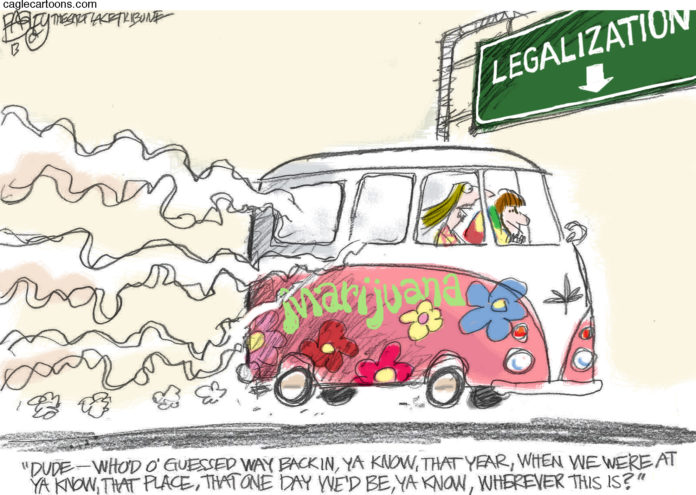BY NATHAN COSBY
Much noise has been made lately about the legalization of marijuana by individual states in the union. The medical community is now on board and agrees that there are multiple medical disorders that are helped if not cured by cannabis.
Colorado and Washington have seen their economies boom from tourism and this boom has allowed new industries to make homes in these states. We have all seen the numbers: the money going to schools, the dramatic drop in crime and murder rates, the success.
I think it is time to bring some success, some good times, some new industry to Oklahoma.
I am sure some look at this call to action as the silly, misguided struggles of a hippie-stoner, but I assure it is not. The reason Oklahoma needs to open up to ending the prohibition of cannabis is actually not about marijuana at all – what Oklahoma needs is the hemp industry.
For decades, Americans have helped prop the economies of Europe, Canada, Japan and Australia through the purchase of hemp goods. For some things importation is necessary; when it comes to hemp it is ridiculous.
Hemp grows naturally all across the United States. Right here in Oklahoma we spend hundreds of thousands per year just to burn hemp plants. If hemp were a controlled substance or a health hazard, this would make perfect sense, but hemp is neither of those things.
Hemp has no psychoactive properties but was made illegal in the 1930s along with its female counterpart cannabis sativa. Cannabis is the correct term for the illegal plant; marijuana was the racialized term thought up by its opponents in the early 20th Century.
So the question has to be asked; why was industrial hemp ever made illegal?
Well, the answer to that question is not what you may expect. People of average intelligence in the ‘30s could have told you that hemp was not psychoactive – all it takes is one puff to know that – but intelligent adults from the ‘70s to today probably could not.
Hemp was made illegal by the paper industry. Led by William Randolph Hearst, the paper industry shut down all industrial hemp production. When you consider that a ream of paper made from hemp takes a matter of days to produce while the paper of the day – theirs and ours – was made by trees that take decades to grow. This would be perfect reason for the Hearst-led old regime, which we still live under today, to nip hemp in the bud.
Paper is one single item that hemp can be made out of. The list of other products are endless, but include cars, airplanes, clothing, houses, furniture, fuel, soap, food, etc. Just about everything that we use today could have a hemp counterpart.
The plant needs no pesticides or insecticides because it produces them naturally. It is one of the fastest growing plants the Earth has to offer and in this time of climate change, it could be our savior.
Recently, President Obama opened the research of industrial hemp up to state universities. Their findings will be extremely interesting.
The next step is to kick our current linen addiction, similar to our oil addiction. Cotton is a great textile, has been for centuries, but it has become too costly on our planet. The amount of water needed to grow acres of cotton added to the condition cotton leaves the top soil, should make people flee from their soft Chinese-made t-shirts for American grown and sewn hemp attire.
If you take a look around the world in 2014, you see hemp. Europe has left us in the dust when it comes to the hemp industry. Germany has hemp fashion designers and fully hemp households.
George Washington and Thomas Jefferson begged Americans to be self-reliant and, alert to their situation at home, they also grew hemp – both genders of the plant.
America has been through her own mistakes with prohibition. The case that most picture when hearing the word prohibition is alcohol, but that only lasted 13 years. The almost 100-year prohibition of hemp and cannabis is coming to an end whether our high-paid politicians like it or not. Washington is already raving about its decision and Colorado became the crown jewel of American tourism in January.
If you do not believe that marijuana has medicinal benefits, that’s fine. What is not fine is making one of the oldest, strongest, fastest-growing plants that the Earth has to offer into some kind of devil weed.
It is time to take back the hemp industry, and take back our self-reliance.
– Nathan Cosby, a recent University of Oklahoma graduate [history], is an occasional contributor to The Oklahoma Observer. He lives in Norman, OK, where he is general manager of The Friendly Market, a hemp retail store that specializes in sustainable clothing








